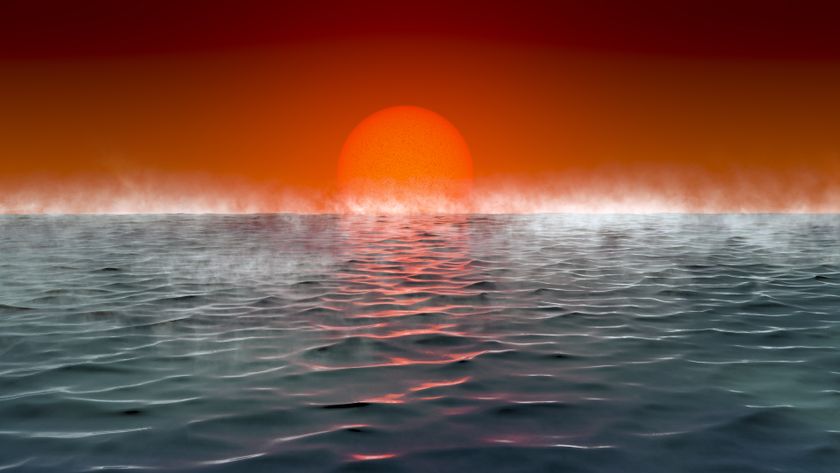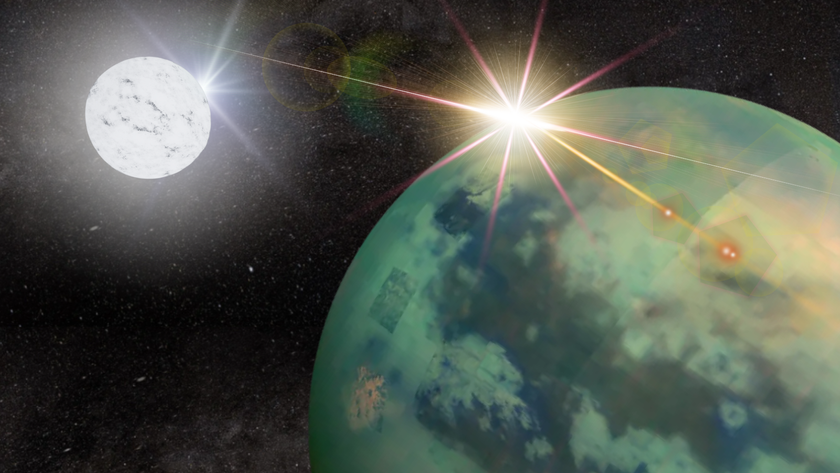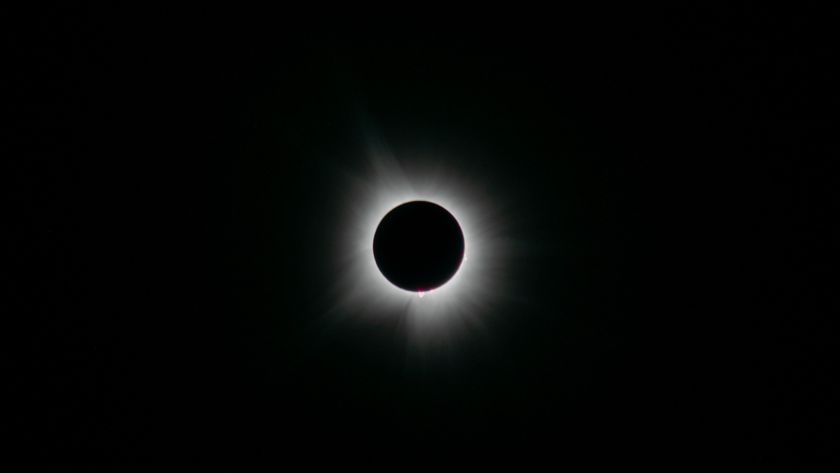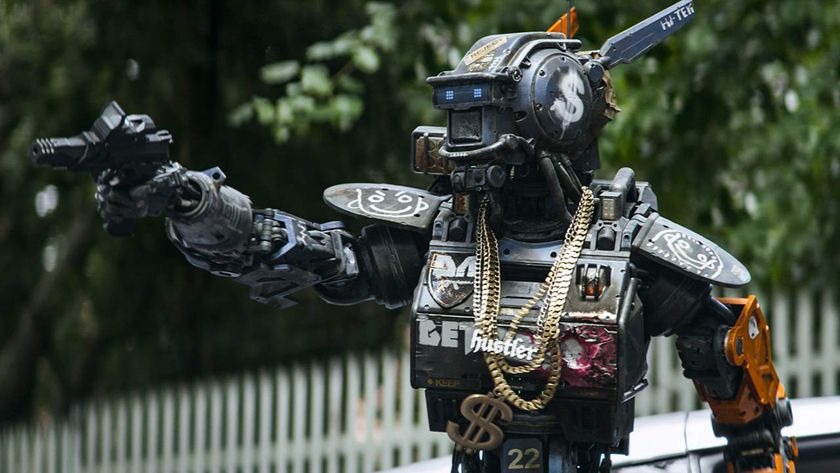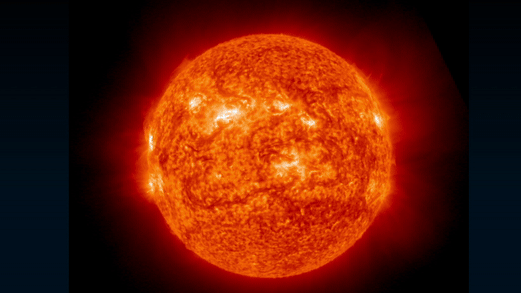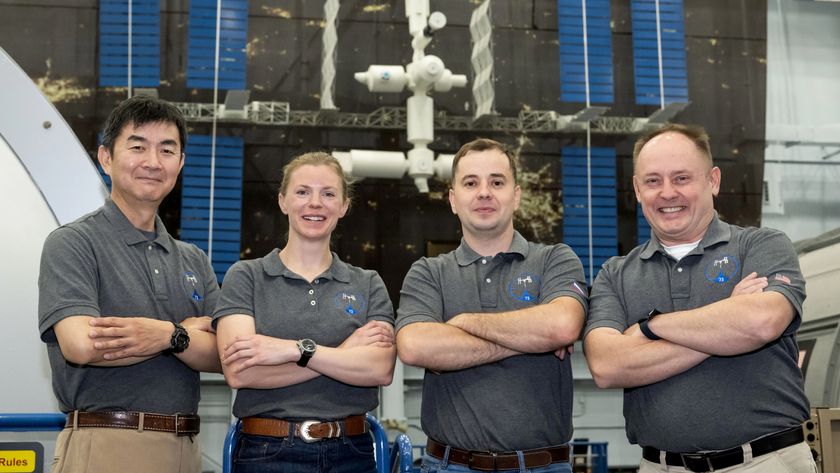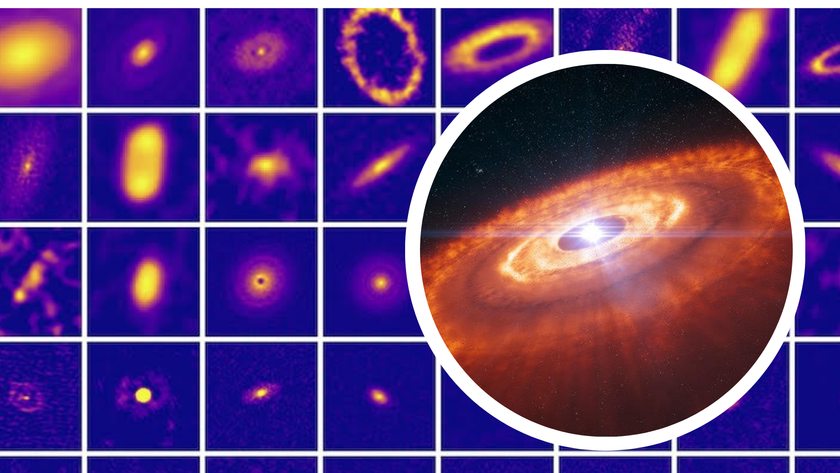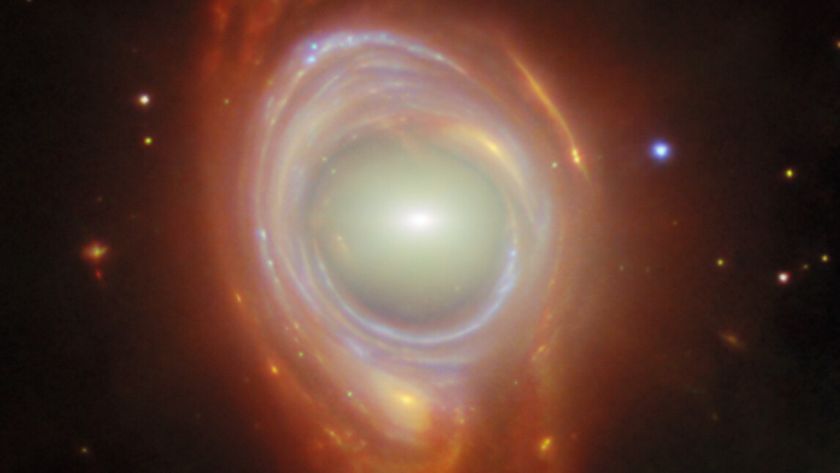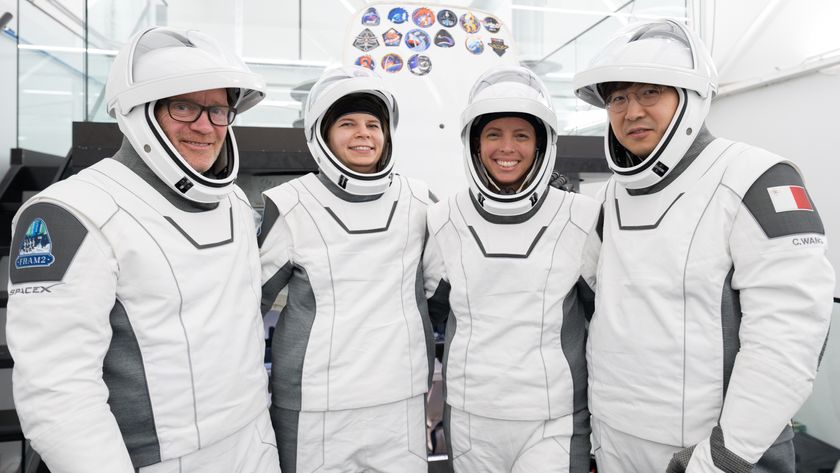Talk with Moon Men
Although I've been to talks by Alan Shepard--the first American in space and Apollo 14 Commander--and Buzz Aldrin--Apollo 11 lunar model pilot, the second man to walk on the Moon--I have actually only had the opportunity to chat at some length with two "Moon Men."
My first experience was over two decades ago. I was a few years old when Sputnik first flew, and I started a scrapbook. That scrapbook contained newspaper clippings of every spacecraft--manned and unmanned--ever flown from Sputnik through to the NASA Gemini two-man-per-capsule missions. I'm not sure why, but I had a favorite astronaut at that time, and it was James Lovell. I followed every flight he had and gave him a special place in my scrapbook.
Thus when I was just finishing a Master's program in Astronomy in San Diego, and heard that James Lovell, of Apollo 8 and Apollo 13 fame, was going to speak, I showed up early. He walked in the door a half-hour early and no one seemed to notice. I walked over, introduced myself, and we had a chat for about half an hour--just the two of us.
We talked about two things--Apollo 13 and, for a much shorter time, the fact that I was interested in the astronaut program. I was encouraged to hear that a Master's degree in astronomy was "pretty good." But mostly it was Apollo 13. I remember telling him it would make a great movie. As we talked, it began to really dawn on me--this man had been to the Moon! Not once, but twice! Although he did not walk on the surface, it was his command ship that the world had prayed about, when Apollo 13 was in trouble.
I don't think the world has ever been as united, before or since--not even when Apollo 11 first landed on the Moon. We had all been such a global community when virtually everyone on the planet had united in support for the Apollo 13 crew to come back alive. It's difficult to describe unless you experienced it. We knew that all religions were praying, meditating, chanting, whatever they did, for these men. From the Pope, to presidents, to royalty, to the folks on the street--everyone that had any access to media, from newspapers to radio, to television, to gossip, knew about Apollo 13 and they were our (all of our) people up there, that we had to get back home safely.
Gene Kranz called it NASA's finest moment when they got back alive, and truly in retrospect it was the finest moment in many fine moments. Well, James Lovell did write the book, "Lost Moon" and it was made into the Ron Howard movie, Apollo 13. But the difference between the movie and in real life everything seemed to happen at once, and the certainty of their safe return was by no means assured. The arriving support crews had left their cars with the keys in them parked all over the roads around Johnson Space Flight Center, and run into Mission Control, for in some instances they really did have only 15 minutes or so to save the crew.
So here I was, I realized, talking to a man who had actually been to the Moon. We had made it! As I shook Mr. Lovell's hand and he went up to speak, I felt I had gotten the inside story--I'd really gotten it; how important it had been for us to have gone to the Moon.
Get the Space.com Newsletter
Breaking space news, the latest updates on rocket launches, skywatching events and more!
It wasn't just the spin-offs (to use NASA-ese). Sure, Silicon Valley and the computer revolution would certainly not have been possible without the race to the Moon. And I often think that historians do not give enough credit to John F. Kennedy and Nikita Khrushchev for diverting their military industrial complexes attention into a race to the Moon. There is no telling, especially after the Cuban missile crisis, where the world might have been if the decision had not been made to divert at least some of that competition to something more productive than war.
Khrushchev's son maintains that his father had had an offer from President Kennedy to collaborate in going to the Moon. But within two weeks of that offer, which Khrushchev was apparently ready to accept, Kennedy was assassinated. The Cold War might have been dissipated decades earlier.
But now it has been over a third of a century (this last April) since we last set foot on the Moon. And one of the last foot prints belongs to the next "Moon Man" I got to spend some time talking with--Dr. Harrison "Jack" Schmitt, Apollo 17 lunar module pilot and the only career scientist (geologist) to step foot on the Moon.
We met more recently--first when I heard he was speaking about 5 years ago at a meeting of Astrobiology interns at NASA Ames Research Center. I had only heard about it the day before and attended the lecture. Afterwards I found myself being a groupie, and standing in line to shake his hand. As I stood in line a few from the front, I again had that comprehensive feeling, "My gosh! This guy has walked on the Moon, for Pete's sake!" I smiled and shook his hand and turned to go. I turned back around and just added, "You know I did my Master's Thesis on the Origin of the Moon."
He smiled a big smile and asked me if I believed the giant impactor theory--that the Earth had been struck by a giant planetesimal the size of Mars and this is what knocked the Moon off the Earth. I knew almost everyone presently adhered to this theory, but I had not been convinced yet myself, and decided to just tell the truth. I said something like, "Well, actually, I know a lot of good work has gone into this theory, and it has many interesting features...and ah, ...well ah,... no. I may not be qualified, but I actually don't believe it."
A huge smile; "Neither do I!" he said. A kindred spirit! And a kindred spirit that has walked on the Moon! And a kindred spirit that has studied lunar geology all his life! Well, we compared notes for the next half hour. Our discussion went on interrupted only by other people filing past to shake his hand. Really great. And we'd have a couple other opportunities to compare notes at scientific meetings as well. When it came to the origin of the Moon, well one could just not find better support on ones side than the only scientist-geologist Moon Man.
And so it has been a third of a century since humans--"we"--walked the lunar soil. It has been difficult for my generation to be mid-teenagers and see folks walking on the Moon, and then just stand by while humans do not leave Earth orbit for almost two generations. It has been difficult to stand by and watch the expertise dissipate, the adventure of exploration be put on the shelf. To just remember the old days. Perhaps we just lost our nerve.
But today, there might be a new Moon race looming. The Chinese already have well qualified astronauts in Earth orbit now, and have indicated that they'd like to send folks to the Moon within the next 15 years. Only nine of the twelve men that walked on the Moon are still with us. All the Apollo astronauts are at least in their 70s (Apollo 16 command module pilot Ken Mattingly is the youngest; he turned 70 March 17, 2006), and they'd have to be in John Glenn shape (he flew in the Shuttle at age 77) to help us land on the Moon again. But we also scrapped the Saturn V rocket, which never failed to get us there, but which we no longer can make, as it was completely de-tooled when we put our eggs in the space shuttle basket, so to speak.
We may have to start from scratch with a lot of this if we are to go back to the Moon again. It's an interesting historical switch. Cheng Ho, under the emperor Yung Lo, sailed several times as far as East Africa, and perhaps into the Atlantic Ocean, with hundreds of ships and thousands of men from about 1405 to 1433. But today the Chinese language is not widely spoken outside of China. With a new emperor this actual beginning of the age of exploration ceased and we generally do not include it in the history of the Age of Exploration.
For a while there it looked as if the language of space would be English, and then--with the continuously inhabited Mir space station--that it would be Russian. But perhaps the language of the Moon will turn out to be Chinese, in an interesting switch of history. Perhaps the age of continued manned Solar System exploration will begin with the first Chinese expeditions to the Moon, with the earlier US landings an interesting side note like Cheng Ho's trips to Africa.
But no. Going to the Moon for the first time was not so much like pioneering the wild west (for the European Americans) and the wild east (for the European Russians). It might not be a coincidence that the two space-faring nations had just had to explore a whole continent each the century before. But going to the Moon was perhaps more like first crawling out of the ocean and trying to live on land. It was something really different for our species; no species from Earth had ever done such a thing before--left the planet completely for another world.
And we perhaps, in the long term, have no choice about it. I think it is in our natures to overcome the limits of space and time. How great to have such a huge satellite-moon to practice exploration on, leading to the planets and the stars. As the 19th Century Russian scientist-engineer, Konstantin Tsiolkovsky, is so often quoted, "The Earth is the cradle of the mind, but we cannot live forever in a cradle."
Apollo 8 first snapped a picture of the Earth "rising" above the Moon in the late 1960s. (It was actually the spacecraft that was rising--the Earth does not rise from any given spot on the Moon because the Moon is tidially locked in rotation, although the Earth does go through phases opposite those of the Moon; a full Earth happens during a new Moon, and vice versa). But that picture showed us that the Earth is a precious cradle indeed, and the modern ecology movement was launched (coincidentally?) during that same time. I wonder what other lessons await us from the perspective of space? Perhaps it's time we ventured out again and found out. It will be fun to see what the next one-third century has in store.
Join our Space Forums to keep talking space on the latest missions, night sky and more! And if you have a news tip, correction or comment, let us know at: community@space.com.
Laurance Doyle is a principal investigator for the Center for the Study of Life in the Universe at the SETI Institute, where he has been since 1987, and is a member of the NASA Kepler Mission Science Team. Doyle’s research has focused on the formation and detection of extrasolar planets. He has also theorized how patterns in animal communication, like those of social cetaceans, relate to humans.
